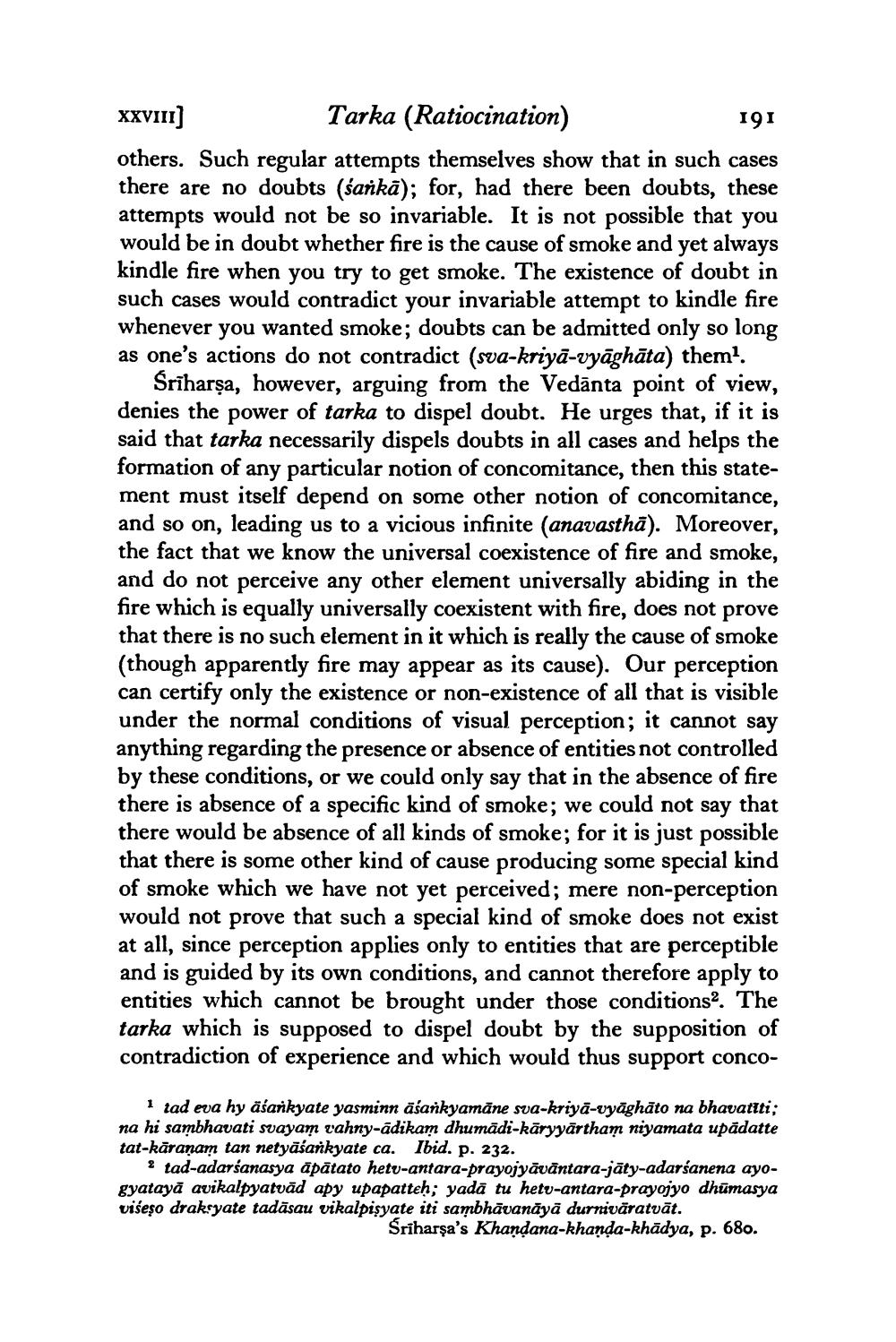________________
XXVIII) Tarka (Ratiocination)
191 others. Such regular attempts themselves show that in such cases there are no doubts (sankā); for, had there been doubts, these attempts would not be so invariable. It is not possible that you would be in doubt whether fire is the cause of smoke and yet always kindle fire when you try to get smoke. The existence of doubt in such cases would contradict your invariable attempt to kindle fire whenever you wanted smoke; doubts can be admitted only so long as one's actions do not contradict (sva-kriya-vyāghāta) them.
Sriharşa, however, arguing from the Vedānta point of view, denies the power of tarka to dispel doubt. He urges that, if it is said that tarka necessarily dispels doubts in all cases and helps the formation of any particular notion of concomitance, then this statement must itself depend on some other notion of concomitance, and so on, leading us to a vicious infinite (anavasthā). Moreover, the fact that we know the universal coexistence of fire and smoke, and do not perceive any other element universally abiding in the fire which is equally universally coexistent with fire, does not prove that there is no such element in it which is really the cause of smok (though apparently fire may appear as its cause). Our perception can certify only the existence or non-existence of all that is visible under the normal conditions of visual perception; it cannot say anything regarding the presence or absence of entities not controlled by these conditions, or we could only say that in the absence of fire there is absence of a specific kind of smoke; we could not say that there would be absence of all kinds of smoke; for it is just possible that there is some other kind of cause producing some special kind of smoke which we have not yet perceived; mere non-perception would not prove that such a special kind of smoke does not exist at all, since perception applies only to entities that are perceptible and is guided by its own conditions, and cannot therefore apply to entities which cannot be brought under those conditions. The tarka which is supposed to dispel doubt by the supposition of contradiction of experience and which would thus support conco
1 tad eva hy āśarkyate yasminn āśarkyamāne sva-kriyā-vyāghāto na bhavatiti; na hi sambhavati svayam rahny-ādikam dhumādi-kāryyārtham niyamata upădatte tat-kāranam tan netyāśankyate ca. Ibid. p. 232.
i tad-adarśanasya āpātato hetv-antara-prayojyāvāntara-jāty-adarśanena ayogyatayā avikalpyatvād apy upapatteh; yadā tu hetu-antara-prayojyo dhūmasya višeşo drakryate tadāsau vikalpisyate iti sambhāvanāyā durniväratvāt.
Sriharşa's Khandana-khanda-khādya, p. 680.




